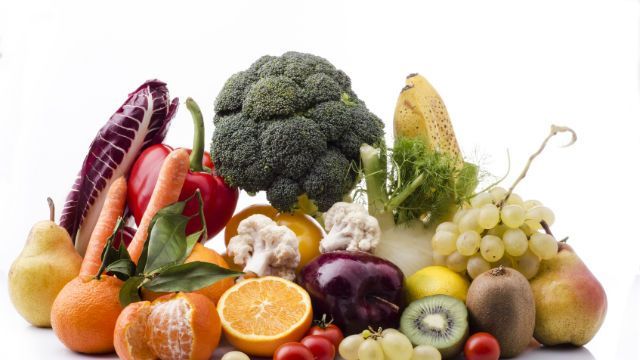
Summer is almost upon us, and as we all know, this means longer days and warm, soothing sunshine. In order to enjoy sunny days without the fear of sunburn and UV damage to our skin, many of us are in the habit of coating every exposed area with sunscreen.
While the sun’s rays can indeed be harmful in excess, they are also vital to our health, and sunscreen may actually do more harm than good.
Instead of slathering on the sunscreen, we can turn to nature for simple, effective protection against the sun. Along with a few common-sense sun habits, these can let us enjoy both the benefits that the sun offers, and help protect our skin.
What’s wrong with sunscreen?
Many sunscreen brands contain a variety of chemical additives, which can irritate skin and introduce unnecessary toxins into our bodies. The new, convenient, spray-on sunscreens have even been known to occasionally ignite if applied prior to approaching a flame source.
Besides these points, however, even organic sunscreens, when overused, can cause problems – as they block the skin’s ability to produce much needed vitamin D.
Despite the widespread use of sunscreen in recent years, skin cancer is on the rise. The most prevalent type on the increase is melanoma, precisely the condition that sunscreens are claiming to protect against. This may be largely due to vitamin D’s links to protecting against over a dozen types of cancer.
The importance of vitamin D
The benefits of vitamin D – which many people, especially in northern climates, are deficient in – go beyond its ties to cancer prevention. Vitamin D is responsible for regulating the calcium and phosphorus absorption in bones and teeth, and assists in cells communicating with each other throughout the body.
Additionally, vitamin D supports the optimal function of the cardiovascular, muscular and immune systems. It also helps to regulate blood pressure, and has even been linked to playing a role in maintaining a healthy body weight. This important vitamin has also been associated with a reduced risk of multiple sclerosis (MS).
Deficiencies in vitamin D have been connected to the rise in obesity, depression and cancers in America, to name only a few conditions.
Foods that help block harmful rays and promote an even tan
Healthy fats: Natural, unprocessed fats, including saturated fats from organic coconut oil and grass-fed meats and dairy, along with omega-3 fatty acids found in fatty fish and flax, are essential to the body’s ability to regenerate skin tissues. Monounsaturated fats, such as those found in avocados, nuts and olive oil also support this process.
Antioxidant-rich fruits and vegetables: Antioxidants help to protect the skin against the damaging effects of sunburn, and also fight the inflammation that leads to a host of diseases. Pomegranates in particular are great for sun protection, as they contain both anthocyanins and tannins, an antioxidant combination which has been linked to protection from damaging UVB rays. Berries are also high in anthocyanins.
Raw, dark chocolate: This delicious treat – healthy if not loaded with added sugar – contains both flavonol antioxidants and healthy fats to protect the skin.
Foods rich in copper: Copper aids the body in producing melanin, the pigment responsible for skin and hair color, which also helps to absorb UV radiation. Foods containing generous amounts of copper include kale, chickpeas and sunflower seeds.
Foods that contain zinc: Zinc is an important mineral that is instrumental in the regeneration of skin tissues. It can help to even skin tone and prevent blemishes from forming. Foods high in zinc include ginger, pumpkin seeds and kidney beans.
Foods high in vitamin E: Vitamin E is one of the most important nutrients for healthy skin, as it protects against damage, and aids in the production of collagen and elastin. Some foods that contain vitamin E are sunflower seeds, spinach and avocados.
Sunny day basics
Even with a healthy diet, you’ll still need to be smart about your time spent in the sun. While soaking in some rays is essential, a sunburn can be very damaging to the skin, not to mention quite painful.
 Start slow – if you have actively avoided the sun for a while, start with about 15 minutes per day during peak sunny hours (between about 10 am and 4 pm) and gradually work your way up as you begin to develop a tan – many people can gradually increase their sun exposure up to several hours.
Start slow – if you have actively avoided the sun for a while, start with about 15 minutes per day during peak sunny hours (between about 10 am and 4 pm) and gradually work your way up as you begin to develop a tan – many people can gradually increase their sun exposure up to several hours.
If you have to be in the sun for longer than your skin is accustomed to, wear loose-fitting, breezy clothing that covers your skin, and a hat to shield your face.
If you need just mild protection, make organic coconut oil your best friend. Not only does this superstar saturated fat protect your skin, it offers mild protection against UV rays when applied topically.
Moisturize with a thin layer of organic coconut oil after sun exposure, and if a sunburn does occur, soothe it with the sap from a fresh-cut aloe vera leaf, or an organic, 100 percent pure gel if you cannot find the real thing.
All in all, play it smart, but make sure to enjoy some time in the sun!
-The Alternative Daily
Sources:
https://www.thealternativedaily.com/4-foods-nourish-skin/
https://www.thealternativedaily.com/1-worst-sunscreen-avoid-costs/
http://wellnessmama.com/2619/avoid-sunburn-and-tan-better-by-eating-real-food/
http://www.medicalnewstoday.com/articles/161618.php
http://whfoods.org/genpage.php?tname=nutrient&dbid=111

